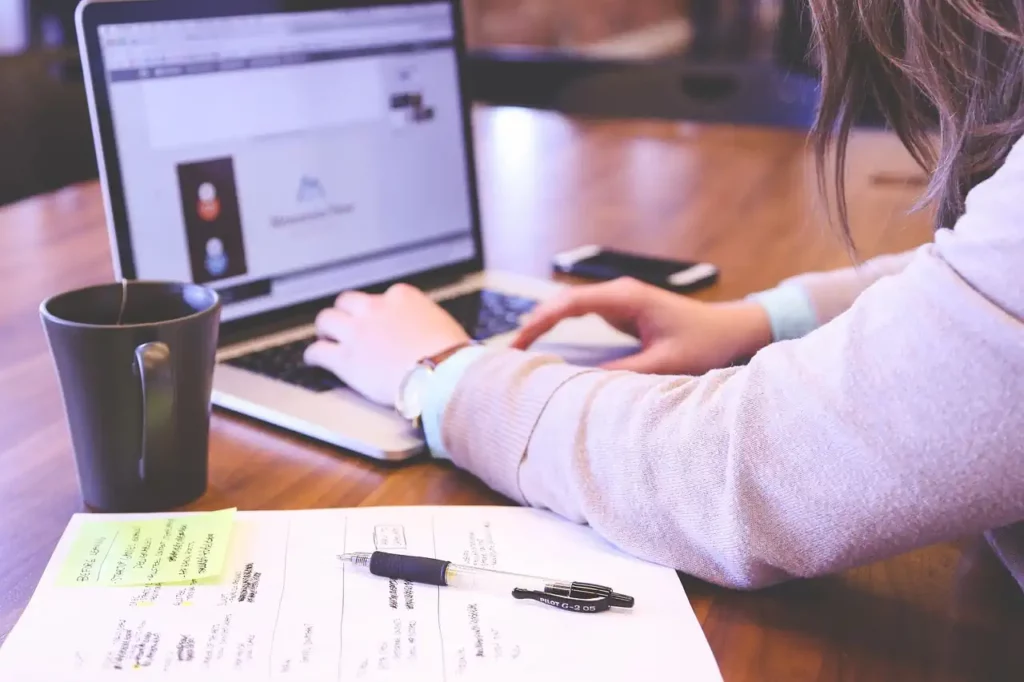How To Save Money During Inflation
Introduction

Inflation can have a significant impact on our finances, making it more challenging to save money. However, there are several strategies that we can implement to save money during inflation. In this article, we will discuss some practical tips that can help you save money and maintain your financial stability during inflation.
Creating a Budget Plan
Inflation is a term that we often hear in the news, and it can have a significant impact on our finances. When prices rise, our purchasing power decreases, and it can be challenging to make ends meet. However, there are ways to save money during inflation, and one of the most effective strategies is to create a budget plan.
A budget plan is a financial roadmap that helps you manage your money and track your expenses. It allows you to see where your money is going and identify areas where you can cut back. Here are some tips on how to create a budget plan that can help you save money during inflation.
1. Determine your income
The first step in creating a budget plan is to determine your income. This includes your salary, any bonuses or commissions, and any other sources of income. Once you have a clear idea of how much money you have coming in, you can start to allocate it to different categories.
2. Identify your expenses
The next step is to identify your expenses. This includes everything from rent or mortgage payments to groceries, utilities, and entertainment. It’s important to be as detailed as possible when listing your expenses so that you can get an accurate picture of where your money is going.
3. Categorize your expenses
Once you have identified your expenses, it’s time to categorize them. This can help you see where you are spending the most money and identify areas where you can cut back. Some common categories include housing, transportation, food, entertainment, and debt repayment.
4. Set priorities
After categorizing your expenses, it’s time to set priorities. This means deciding which expenses are essential and which ones you can live without. For example, housing and food are essential expenses, while entertainment and dining out are discretionary expenses.
5. Create a spending plan
Now that you have a clear idea of your income, expenses, and priorities, it’s time to create a spending plan. This is where you allocate your income to different categories based on your priorities. It’s important to be realistic when creating your spending plan and to leave some room for unexpected expenses.
6. Track your expenses
Once you have created your spending plan, it’s important to track your expenses. This means keeping a record of everything you spend and comparing it to your spending plan. This can help you identify areas where you are overspending and make adjustments as needed.
7. Review and adjust your budget plan
Finally, it’s important to review and adjust your budget plan regularly. This means looking at your expenses and income on a regular basis and making changes as needed. For example, if you get a raise at work, you may want to allocate some of that extra income to savings or debt repayment.
In conclusion, creating a budget plan is an effective way to save money during inflation. By identifying your income, expenses, and priorities, you can create a spending plan that helps you manage your money and track your expenses. Remember to track your expenses and review and adjust your budget plan regularly to ensure that you are on track to meet your financial goals. With a little bit of effort and discipline, you can save money and weather the storm of inflation.
Investing in Stocks and Bonds
Inflation can be a scary thing for many people, especially those who are trying to save money. As prices rise, it can be difficult to keep up with the cost of living. However, there are ways to combat inflation and even save money during these times. One of the best ways to do this is by investing in stocks and bonds.
Investing in stocks and bonds can be a great way to save money during inflation because these investments tend to perform well during times of economic growth. When the economy is doing well, companies tend to make more money, which can lead to higher stock prices. Additionally, bonds can provide a steady stream of income through interest payments.
When it comes to investing in stocks, it’s important to do your research and choose companies that are likely to perform well in the long run. Look for companies with strong financials, a solid track record, and a competitive advantage in their industry. It’s also important to diversify your portfolio by investing in a variety of companies across different industries.
Another option for investing in stocks is to invest in index funds or exchange-traded funds (ETFs). These funds track a specific index, such as the S&P 500, and provide exposure to a wide range of companies. This can be a great way to diversify your portfolio without having to do a lot of research on individual companies.
When it comes to investing in bonds, there are a few different options to consider. One option is to invest in government bonds, which are considered to be very safe investments. These bonds are issued by the government and are backed by the full faith and credit of the United States. They typically offer lower returns than other types of bonds, but they are also less risky.
Another option is to invest in corporate bonds, which are issued by companies. These bonds tend to offer higher returns than government bonds, but they also come with more risk. It’s important to do your research and choose companies with strong financials and a good track record.
In addition to investing in stocks and bonds, there are a few other things you can do to save money during inflation. One option is to look for ways to reduce your expenses. This might mean cutting back on non-essential purchases, finding ways to save on groceries, or even downsizing your home.
Another option is to look for ways to increase your income. This might mean taking on a side hustle, asking for a raise at work, or even starting your own business. By increasing your income, you can offset the effects of inflation and save more money in the long run.
Overall, investing in stocks and bonds can be a great way to save money during inflation. By choosing the right investments and diversifying your portfolio, you can protect your savings and even grow your wealth over time. Additionally, by looking for ways to reduce your expenses and increase your income, you can further offset the effects of inflation and achieve your financial goals.
Reducing Energy Consumption
Inflation can be a challenging time for many people, as the cost of living increases and the value of money decreases. However, there are ways to save money during inflation, and one of the most effective ways is by reducing energy consumption.
Reducing energy consumption not only helps you save money on your utility bills, but it also helps to reduce your carbon footprint and contribute to a more sustainable future. Here are some tips on how to reduce your energy consumption and save money during inflation.
Firstly, consider investing in energy-efficient appliances. Energy-efficient appliances use less energy to operate, which means that they can help you save money on your utility bills in the long run. Look for appliances with the Energy Star label, which indicates that they meet strict energy efficiency guidelines set by the U.S. Environmental Protection Agency.
Secondly, make sure that your home is properly insulated. Insulation helps to keep your home warm in the winter and cool in the summer, which means that you can use less energy to heat or cool your home. Check your attic, walls, and floors for insulation, and consider adding more if necessary.
Thirdly, turn off lights and electronics when you’re not using them. This may seem like a small thing, but it can add up to significant savings over time. Make it a habit to turn off lights when you leave a room, and unplug electronics when they’re not in use.
Fourthly, use natural light whenever possible. Open your curtains or blinds during the day to let in natural light, and turn off artificial lights in rooms that are not being used. This not only helps you save money on your energy bills, but it also creates a more pleasant and inviting atmosphere in your home.
Fifthly, adjust your thermostat. During the winter, set your thermostat to a lower temperature when you’re not at home or when you’re sleeping. During the summer, set your thermostat to a higher temperature when you’re not at home or when you’re sleeping. This can help you save money on your heating and cooling bills without sacrificing comfort.
Lastly, consider using renewable energy sources. Solar panels and wind turbines are becoming more affordable and accessible, and they can help you generate your own electricity and reduce your reliance on the grid. While the initial investment may be high, the long-term savings can be significant.
In conclusion, reducing energy consumption is a great way to save money during inflation. By investing in energy-efficient appliances, properly insulating your home, turning off lights and electronics, using natural light, adjusting your thermostat, and considering renewable energy sources, you can significantly reduce your energy bills and contribute to a more sustainable future. So, start implementing these tips today and enjoy the benefits of a more energy-efficient home.
Shopping Smart and Using Coupons
Inflation can be a challenging time for many people, as the cost of living increases and the value of money decreases. However, there are ways to save money during inflation, and one of the most effective methods is by shopping smart and using coupons.
Firstly, it’s important to understand the impact of inflation on prices. During inflation, the prices of goods and services increase, which means that you’ll need to spend more money to purchase the same items. This can be frustrating, but there are ways to mitigate the effects of inflation on your wallet.
One of the best ways to save money during inflation is by shopping smart. This means being strategic about where and when you shop, and taking advantage of sales and discounts. For example, you can save money by shopping at discount stores or buying items in bulk. You can also save money by shopping during off-peak times, such as weekdays or early mornings, when stores are less crowded and prices may be lower.
Another way to save money during inflation is by using coupons. Coupons are a great way to get discounts on the items you need, and they can be found in a variety of places, including newspapers, magazines, and online. You can also sign up for loyalty programs at your favorite stores, which often offer exclusive coupons and discounts to members.
When using coupons, it’s important to be strategic about how you use them. For example, you can stack coupons to get even bigger discounts, or use them in combination with sales to maximize your savings. You can also use coupons to try new products or brands that you might not have otherwise considered.
In addition to traditional coupons, there are also digital coupons that can be found online or through mobile apps. These coupons can be scanned directly from your phone at the checkout, making them a convenient and easy way to save money.
When shopping with coupons, it’s important to read the fine print and understand any restrictions or limitations. Some coupons may only be valid for certain items or brands, or may have expiration dates. It’s also important to be mindful of the total cost of your purchase, as even with coupons, you may still be spending more than you would during non-inflationary times.
Overall, shopping smart and using coupons are effective ways to save money during inflation. By being strategic about where and when you shop, and taking advantage of discounts and coupons, you can stretch your budget further and make your money go further. So next time you’re out shopping, be sure to keep these tips in mind and see how much you can save!
Cutting Back on Dining Out
Inflation can be a challenging time for many people, especially when it comes to managing their finances. Prices of goods and services tend to rise, and this can put a strain on your budget. However, there are ways to save money during inflation, and one of them is by cutting back on dining out.
Dining out can be a significant expense, especially if you do it frequently. However, it is also one of the easiest expenses to cut back on. Here are some tips on how to save money by cutting back on dining out.
1. Cook at home
One of the best ways to save money on dining out is by cooking at home. Cooking at home is not only cheaper, but it is also healthier. You can control the ingredients you use, and you can make sure that your meals are nutritious. Additionally, cooking at home can be a fun activity that you can do with your family or friends.
2. Plan your meals
Planning your meals can help you save money and time. When you plan your meals, you can make a grocery list and buy only the ingredients you need. This can help you avoid buying unnecessary items and reduce food waste. Additionally, planning your meals can help you avoid the temptation of dining out.
3. Use coupons and discounts
If you do decide to dine out, make sure to use coupons and discounts. Many restaurants offer coupons and discounts to attract customers. You can find these coupons and discounts online or in local newspapers. Additionally, some restaurants offer discounts during certain times of the day or week. Make sure to take advantage of these discounts to save money.
4. Choose cheaper restaurants
Choosing cheaper restaurants can also help you save money. You do not have to dine at expensive restaurants to have a good meal. There are many affordable restaurants that offer delicious food. Additionally, you can try ethnic restaurants that offer authentic cuisine at a lower price.
5. Reduce the frequency of dining out
Reducing the frequency of dining out can also help you save money. Instead of dining out every week, try to limit it to once a month or on special occasions. This can help you save money and also make dining out more special.
In conclusion, cutting back on dining out is an effective way to save money during inflation. Cooking at home, planning your meals, using coupons and discounts, choosing cheaper restaurants, and reducing the frequency of dining out are all ways to save money. By implementing these tips, you can enjoy delicious meals while also saving money.
Using Public Transportation
Inflation can be a challenging time for many people, as the cost of living increases and the value of money decreases. However, there are ways to save money during inflation, and one of the most effective ways is by using public transportation.
Public transportation is a cost-effective way to get around, especially during inflation. With the rising cost of fuel and the increasing prices of cars, using public transportation can help you save a significant amount of money. Not only will you save on fuel costs, but you will also save on maintenance and repair costs associated with owning a car.
Another benefit of using public transportation is that it can help you avoid the stress of driving in traffic. Traffic can be frustrating and time-consuming, and it can also be expensive if you get stuck in it for too long. By using public transportation, you can avoid the stress of driving in traffic and arrive at your destination feeling relaxed and refreshed.
Using public transportation can also be a great way to reduce your carbon footprint. Cars are a major source of greenhouse gas emissions, and by using public transportation, you can help reduce your impact on the environment. This is especially important during inflation, as the rising cost of fuel can lead to an increase in carbon emissions.
If you are new to using public transportation, there are a few things you should keep in mind. First, make sure you plan your route ahead of time. This will help you avoid getting lost or taking the wrong bus or train. You can use online maps or apps to help you plan your route, or you can ask for help from a transit employee.
Second, make sure you have the right fare or ticket. Most public transportation systems require you to have a ticket or pass to ride, and the cost of these can vary depending on the system. Make sure you have the right fare or ticket before you board, or you may be subject to a fine.
Finally, be prepared for delays or disruptions. Public transportation can be affected by a variety of factors, including weather, traffic, and mechanical issues. Make sure you give yourself plenty of time to get to your destination, and be prepared to adjust your plans if necessary.
In conclusion, using public transportation is a great way to save money during inflation. Not only will you save on fuel and maintenance costs, but you will also avoid the stress of driving in traffic and reduce your carbon footprint. If you are new to using public transportation, make sure you plan your route ahead of time, have the right fare or ticket, and be prepared for delays or disruptions. With these tips in mind, you can enjoy the many benefits of using public transportation and save money during inflation.
Negotiating Bills and Expenses
Inflation can be a challenging time for many people, as the cost of living increases and the value of money decreases. However, there are ways to save money during inflation, and one of the most effective methods is negotiating bills and expenses.
The first step in negotiating bills and expenses is to assess your current situation. Take a look at your monthly bills and expenses and determine which ones are negotiable. For example, your cable or internet bill may be negotiable, as well as your insurance premiums or cell phone plan.
Once you have identified which bills and expenses are negotiable, it’s time to start negotiating. The key to successful negotiation is to be prepared and confident. Do your research and find out what other companies are offering for similar services. This will give you leverage when negotiating with your current provider.
When negotiating, be polite but firm. Explain your situation and why you are looking to save money. Ask if there are any promotions or discounts available that you may be eligible for. If the representative is unable to offer any discounts, ask to speak with a supervisor or manager.
Another way to save money on bills and expenses is to bundle services. Many companies offer discounts for bundling services such as cable, internet, and phone. This can save you a significant amount of money each month.
If you are unable to negotiate a lower rate for your bills and expenses, consider switching providers. Many companies offer new customer promotions that can save you money. However, be sure to read the fine print and understand any fees or contracts associated with switching providers.
In addition to negotiating bills and expenses, there are other ways to save money during inflation. One way is to cut back on unnecessary expenses. Take a look at your monthly budget and identify areas where you can cut back. For example, eating out less or canceling subscriptions you don’t use can save you money each month.
Another way to save money is to shop around for the best deals. Compare prices at different stores and online retailers before making a purchase. You may be able to find the same product for a lower price elsewhere.
Finally, consider investing in assets that appreciate in value. During inflation, the value of money decreases, but the value of assets such as real estate and gold typically increases. Investing in these assets can help protect your money from inflation.
In conclusion, negotiating bills and expenses is an effective way to save money during inflation. Be prepared and confident when negotiating, and consider bundling services or switching providers if necessary. Additionally, cutting back on unnecessary expenses, shopping around for the best deals, and investing in assets that appreciate in value can also help protect your money during inflation.
Conclusion
Conclusion: To save money during inflation, it is important to prioritize needs over wants, reduce unnecessary expenses, invest in assets that appreciate in value, and consider alternative sources of income. It is also important to stay informed about the current economic situation and adjust financial strategies accordingly. By implementing these strategies, individuals can protect their finances and maintain their purchasing power during times of inflation.







